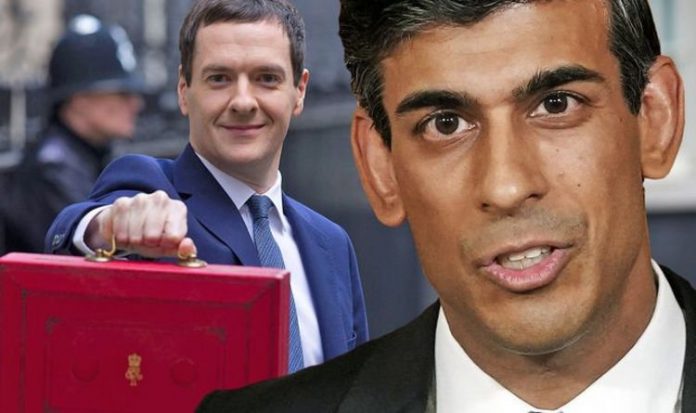Prime Minister Boris Johnson vowed to defeat coronavirus and build a better country over the next decade in his leader’s speech to the virtual Conservative Party conference. Evoking the UK’s recovery from World War 2, he said he wanted to build a “new Jerusalem”, with opportunity for all as he seeks to improve housing and healthcare provisions. He promised the Government will roll out new 95 percent mortgages for first-time buyers, invest in offshore wind and “explore the value of” one-to-one tuition in schools.
While Britons responded positively to the speech, political commentator Stephen Bush argued it was “hard to reconcile” with the words of Chancellor of the Exchequer Rishi Sunak delivered just the day before.
Mr Sunak warned that, ultimately, all these extraordinary coronavirus measures will need to be paid for, and that there is a real cost to increasing the national debt in the manner he has done.
In a recent report for the New Statesman, though, journalist Harry Lambert claimed that with that narrative, Mr Sunak risks inflicting the same economic pain that followed the austerity imposed by former Chancellor George Osborne.
Mr Lambert argued the UK does not need to pursue austerity in the near future, as Mr Sunak does not have to tackle debt now, or even perhaps for the next decade.
He wrote: “The cost of Government debt has never been so low, and debt only matters when it is costly.
“Despite a surge in the UK’s debt burden this year, the cost of servicing that debt has fallen.
“This is the counter-intuitive reality of the current crisis.
“The UK’s debt, which absorbed as much as 13 percent of the Government’s spending in the late Seventies, and five to six percent over the past two decades, is forecast to cost the UK only four percent of its revenue in the next few years. It will, in other words, impose an unusually light burden. As Olivier Blanchard, a former chief economist of the IMF, wrote recently, in a world of low interest rates, ‘public debt may have no fiscal cost.'”
Andrew Bailey, the Governor of the Bank of England, was quoted as saying in July: “This is not a prediction about what is going to happen to interest rates and monetary policy.
JUST IN: Dominic Cummings’ brutal critique of Merkel’s influence
He concluded: “It is not clear, however, that Sunak needs to act soon.
“By rushing to reduce the debt, he risks inflicting the same economic pain that followed the austerity imposed by George Osborne a decade ago. Sunak is a far more popular chancellor than Osborne ever was, and has a far greater chance of achieving his predecessor’s aim of moving into No 10.
“But by clinging to traditional Tory and Treasury ideology, Sunak may soon thwart these hopes.”







